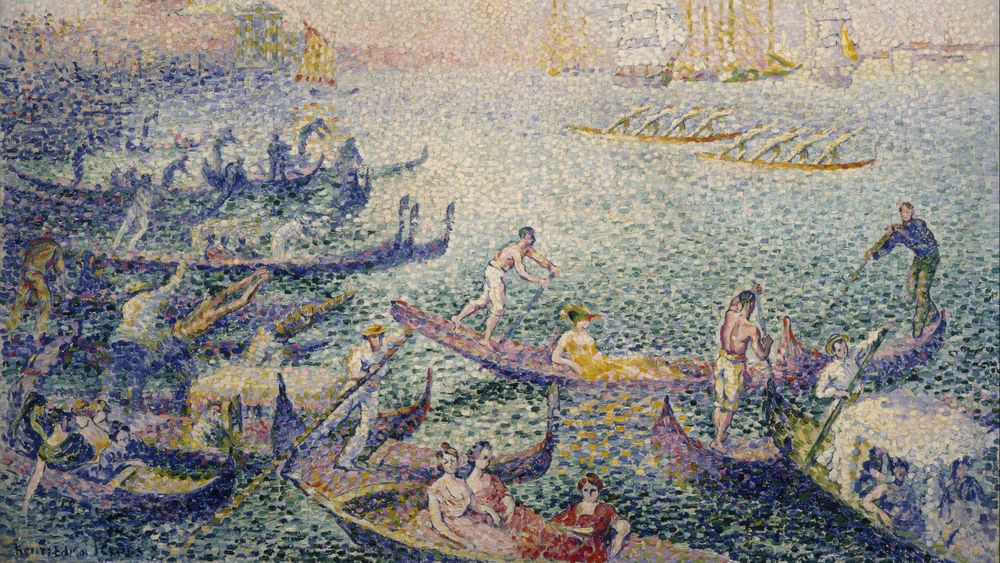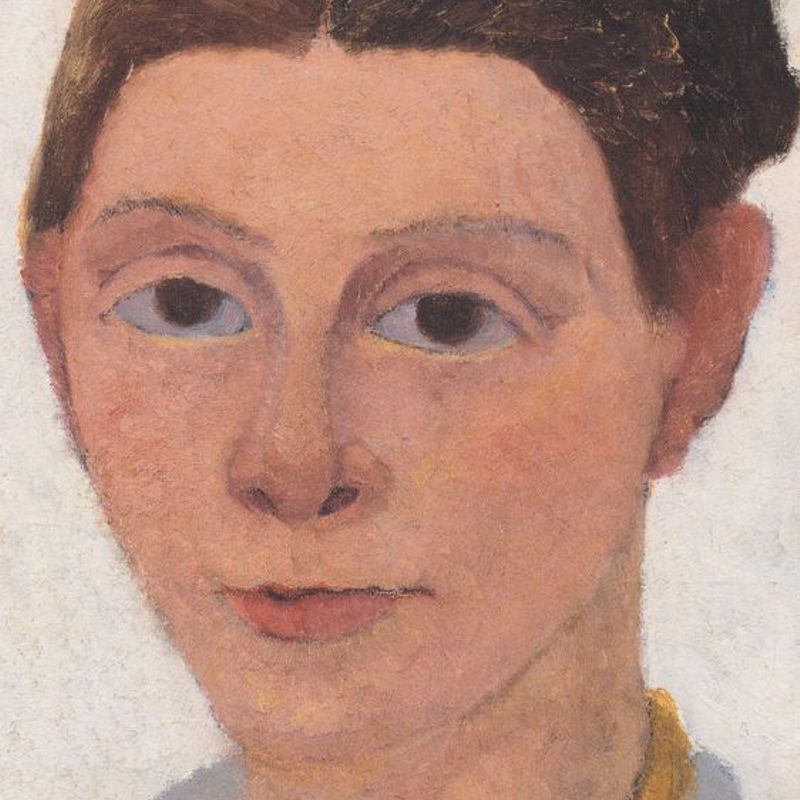
Gustav Klimt
Gustav Klimt was an Austrian Symbolist painter at the turn of the 19th century and the first president of the Vienna Secession movement, which rejected the traditional, historical sensibilities of the prevailing Association of Austrian Artists. Klimt’s early works, however, won the affections of the culturally rigid elites of the Austrian Empire, and his 1880 decorations of Vienna’s Burgtheater caused Emperor Franz Josef to grant him the Golden Order of Merit. Once Klimt had amassed personal wealth from mural commissions, he began painting the erotic figures that shook the establishments and now define his career. Not only did he paint dream-like figures in sexually charged entanglements (Death and Life (1915), The Kiss (1907–08)), he also decorated them with geometric shapes that undoubtedly signified genitalia: women outfitted with circles within circles, and men with long boxes. Furthermore, the flat gold leaf these shapes lay on recall the religious icons of the Medieval era, a connection he made explicit in his 1913 work The Virgin. Klimt’s embrace of the erotic emerged just after Sigmund Freud’s (also living in Vienna) early theories on sexuality. Klimt had a large following, most notably Egon Schiele, and is one of the most recognizable artists today.
Editorial (5)

Behind the Scenes with Annabeth Mohon
(Read our other exclusive interviews with artists here.)

Gustav Klimt’s “The Kiss"
In our series Why Is This Famous?, we aim to answer the unanswerable: How does a work actually enter the public consciousnes…

A Very French Art Heist, the Return of Dana Schutz & More
Each week, we scour the internet for the most significant, surprising, and outrageous art news—helping you stay informed (an…
Playlists (38)



Meural Sampler



Stolen Paintings
Related artists

Paula Modersohn-Becker
German, 1876–1907
Charles-François Daubigny
French, 1817–1878